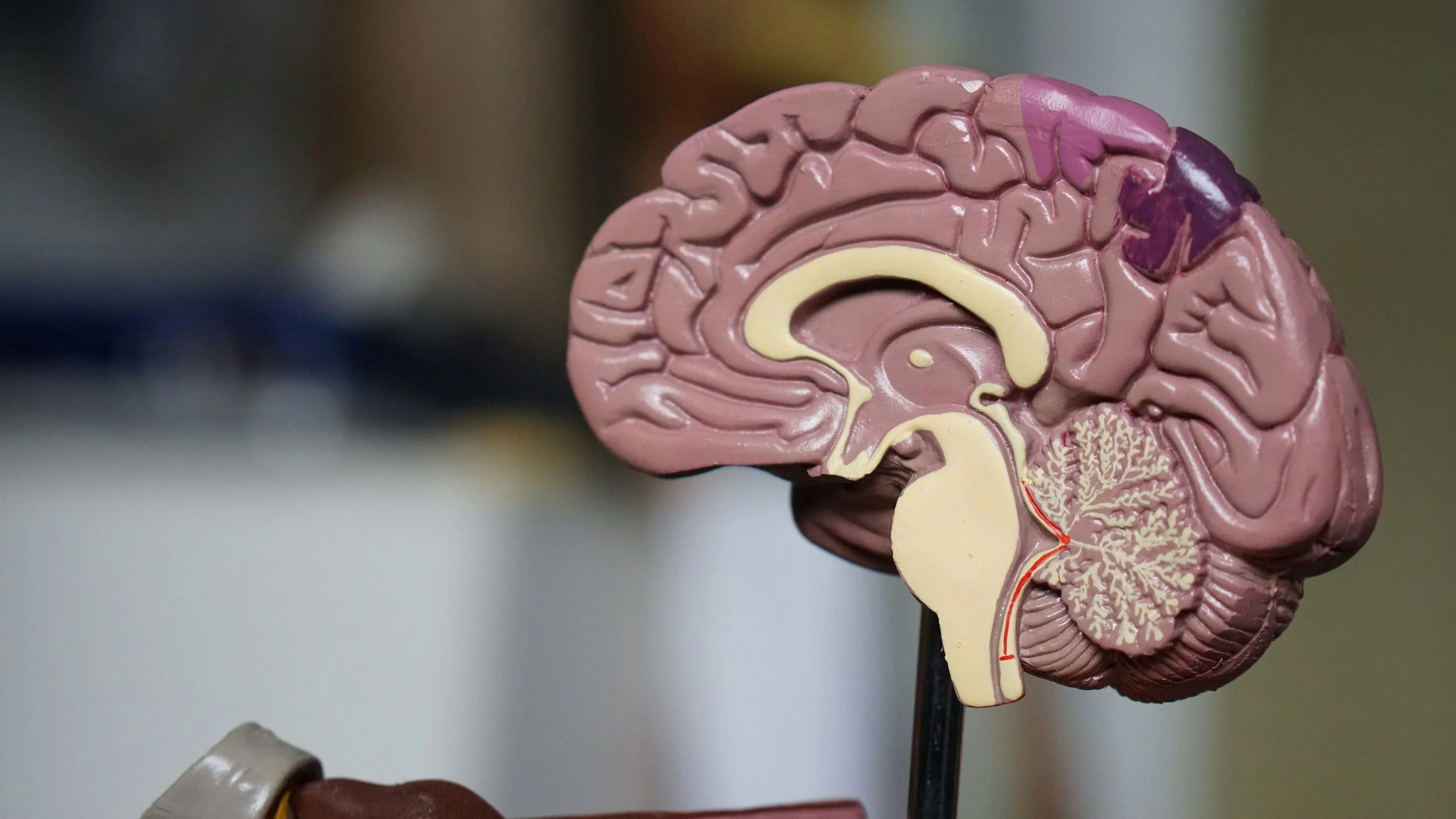Speech Therapy for Traumatic Brain Injury (TBI)
Recovering from a traumatic brain injury (TBI) can be a long and unpredictable journey. Whether the injury was mild or severe, many people experience ongoing difficulties with memory, attention, communication, or swallowing that affect everyday life.
As a speech-language pathologist, I work with adults who are healing from brain injuries—helping them rebuild cognitive and communication skills, regain function, and restore confidence in daily routines.
What Is a Traumatic Brain Injury?
A traumatic brain injury occurs when an external force—such as a fall, car accident, or blow to the head—causes damage to the brain. Depending on the severity and location of the injury, people may experience:
Difficulty speaking clearly or fluently
Trouble understanding others or following conversations
Short-term memory loss
Problems focusing, organizing, or problem-solving
Reduced processing speed or mental “fog”
Mood swings or changes in behavior
Difficulty with swallowing (dysphagia)
Some symptoms appear immediately, while others may develop over time as the brain heals. Every brain injury is different, and so is every recovery.
Classification and Causes of TBI
TBI is defined as a disruption in brain function caused by an external force, such as a fall, motor vehicle accident, sports injury, or assault. It can also result from blast injuries in military contexts.
Severity Levels:
Mild TBI (mTBI): Often referred to as a concussion. Symptoms may include headache, dizziness, confusion, fatigue, and brief loss of consciousness or none at all.
Moderate TBI: Loss of consciousness may last from minutes to hours, and confusion can persist for days or weeks.
Severe TBI: Involves extended unconsciousness or coma, often leading to long-term impairments.
Diagnosis is typically based on the Glasgow Coma Scale (GCS), imaging studies (CT or MRI), and clinical evaluation. Even mild TBIs are now understood to potentially have lasting cognitive or emotional effects, especially with repeated injuries.
Common Symptoms and Long-Term Impact
The consensus in recent literature highlights that TBI can affect nearly every domain of functioning, and symptoms may evolve or persist over time:
Cognitive Impairments:
Memory loss (especially short-term)
Difficulty with attention and concentration
Impaired executive function (planning, organizing, decision-making)
Communication Deficits:
Word-finding difficulty (anomia)
Reduced speech clarity (dysarthria)
Difficulty understanding or producing language (aphasia-like symptoms)
Social communication issues (e.g., interpreting tone, turn-taking)
Emotional and Behavioral Changes:
Irritability, impulsivity, mood swings
Depression and anxiety
Reduced self-awareness (anosognosia)
Physical Effects:
Headaches, fatigue, dizziness
Sleep disturbances
Sensory sensitivity (light, sound)
Swallowing problems (dysphagia) can also occur, especially with moderate to severe TBI, due to disrupted neuromuscular coordination.
Recovery can be nonlinear, and symptoms may persist even with a normal MRI or CT scan—this is especially common in cases of mild TBI.
Treatment and Recovery Consensus
Current best practices emphasize that early, multidisciplinary, and individualized rehabilitation offers the best chance at functional recovery.
Key Principles:
Neuroplasticity: The brain can reorganize and form new connections; this is the basis for targeted rehabilitation.
Multidisciplinary Care: Treatment often involves a team including:
Neurologists
Physiatrists
Speech-language pathologists
Occupational and physical therapists
Neuropsychologists
Speech-language pathology is specifically used for:
Cognitive-communication rehab (memory, attention, problem-solving)
Speech and language recovery
Swallowing therapy
Social communication and pragmatic skills
Return-to-work or daily life readiness
Recovery Outlook:
Most improvement occurs in the first 6–12 months, but gains are possible for years.
Mild TBIs often recover fully with rest and gradual return to activity, though post-concussive symptoms can persist.
Severe TBIs may lead to lasting impairments, but quality of life can still improve with ongoing therapy and support.
How Speech Therapy Can Help TBI
After a TBI, speech therapy focuses on restoring function across three main areas:
1. Cognitive-Communication Skills
I help patients improve:
Memory and recall
Attention and concentration
Time management and organization
Reasoning and problem-solving
Social communication (taking turns, understanding tone or emotion)
These skills are essential not only for work or school, but for maintaining independence at home and in the community.
2. Speech and Language
Some people with TBI experience:
Slurred speech (dysarthria)
Difficulty finding or organizing words (expressive language issues)
Problems understanding spoken or written information
Therapy addresses these issues through exercises that target clarity, language structure, and comprehension.
3. Swallowing Therapy
Swallowing issues can occur when a brain injury disrupts the coordination of muscles used to chew and swallow. I assess swallowing safety and provide exercises, strategies, and dietary modifications to reduce risk and promote comfortable eating.
Individualized, Goal-Oriented Treatment
No two brain injuries are alike. That’s why I create therapy plans based on each person’s goals, strengths, and day-to-day needs. Therapy might include:
Structured routines to improve memory and attention
Word-finding and sentence-building tasks
Home exercises to reinforce progress
Tools like calendars, written cues, or memory books
Family education and caregiver support
The goal is to improve real-life functioning—whether that means managing medications, having conversations, or returning to work or hobbies.
Where I Work
I offer in-home therapy throughout Palm Beach County, including Boynton Beach, Delray Beach, and surrounding areas. Therapy is available for patients in their homes, assisted living facilities, or remotely via teletherapy when appropriate.
You’re Not Alone in This
Recovery after a brain injury can be slow and frustrating—but you don’t have to do it alone. With consistent therapy, structured support, and the right strategies, meaningful progress is possible.
Contact me to learn more about therapy after brain injury or to schedule an initial consultation.




